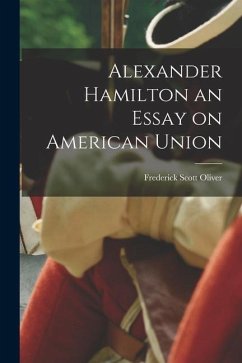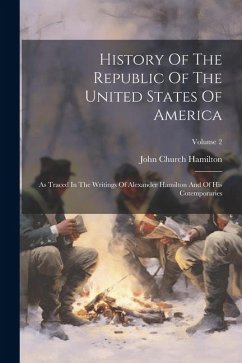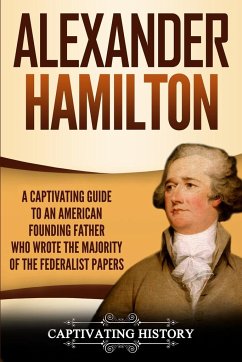
Alexander Hamilton
Versandkostenfrei!
Versandfertig in 1-2 Wochen
16,99 €
inkl. MwSt.
Weitere Ausgaben:

PAYBACK Punkte
8 °P sammeln!
A stirring portrait of ambition, power, and nation-making that reads like a study in momentum and consequence. This expanded edition brings Alexander Hamilton back to life for a new generation of readers. In concise, lucid prose, Charles A. Conant maps the man behind the founding era's most enduring debates-finance, politics, and the birth of a republic. The book serves as a focused historical biography that blends biography with political history study, illuminating Hamilton's role in shaping american financial history, the late american revolution's aftershocks, and the traffic of ideas that...
A stirring portrait of ambition, power, and nation-making that reads like a study in momentum and consequence. This expanded edition brings Alexander Hamilton back to life for a new generation of readers. In concise, lucid prose, Charles A. Conant maps the man behind the founding era's most enduring debates-finance, politics, and the birth of a republic. The book serves as a focused historical biography that blends biography with political history study, illuminating Hamilton's role in shaping american financial history, the late american revolution's aftershocks, and the traffic of ideas that moved New York and America toward a modern state. It is accessible to the history student reader while offering rich material for researchers and classic-literature collectors alike. Conant's narrative is notable for its careful context, energetic pacing, and reverent examination of a figure whose life intersects with George Washington biographies and the wider drama of founding fathers biographies. The work stands as a significant literary-historical artefact-more than a traditional reprint, it invites fresh engagement with a pivotal chapter of American development. Selling points carry through: Out of print for decades and now republished by Alpha Editions; Restored for today's and future generations; More than a reprint - a collector's item and a cultural treasure. A thoughtful, enduring resource for history enthusiasts, scholars, and curious readers alike.














